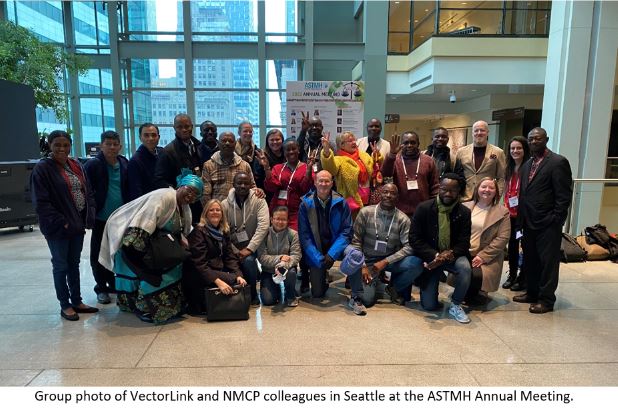 Last week, more than two dozen of our VectorLink staff were joined by NMCP partners and PMI colleagues at the American Society of Tropical Medicine & Hygiene (ASTMH) 2022 Annual Meeting in Seattle, Washington. From the moment the ASTMH abstract acceptances were received several months ago, a lot of work has gone into poster and presentation preparation as well as logistics arrangements, by country and home office teams. And it all paid off—with an excellent showing of PMI VectorLink’s work over the four-day event. So, to everyone involved in making PMI VectorLink’s presence such a success, this Fist Bump goes to you.
Last week, more than two dozen of our VectorLink staff were joined by NMCP partners and PMI colleagues at the American Society of Tropical Medicine & Hygiene (ASTMH) 2022 Annual Meeting in Seattle, Washington. From the moment the ASTMH abstract acceptances were received several months ago, a lot of work has gone into poster and presentation preparation as well as logistics arrangements, by country and home office teams. And it all paid off—with an excellent showing of PMI VectorLink’s work over the four-day event. So, to everyone involved in making PMI VectorLink’s presence such a success, this Fist Bump goes to you.
The project had 15 posters, two scientific sessions, and a symposium, sharing our work in Cambodia, Cameroon, Colombia, Ethiopia, Ghana, Liberia, Madagascar, Malawi, Mali, Niger, Nigeria, Sierra Leone, and Zambia. Every person did a wonderful job presenting their findings and showing the ASTMH attendees all the incredible work that PMI VectorLink is doing. We also organized a well-attended, highly engaging Durability Monitoring Side Meeting that focused on country experiences, challenges, and lessons learned, which will help inform this work moving forward.
Our attendance at the Annual Meeting would not have been possible without the hard work of those coordinating the logistics. From tracking conference participation, booking flights and hotels, ensuring deadlines for submission were met, and engaging attendees in Seattle, the behind-the-scenes team deserves an equal amount of credit. And of course, an extra word of thanks for our PMI COR team for all their support, too!
Kudos to all of us, VectorLink!


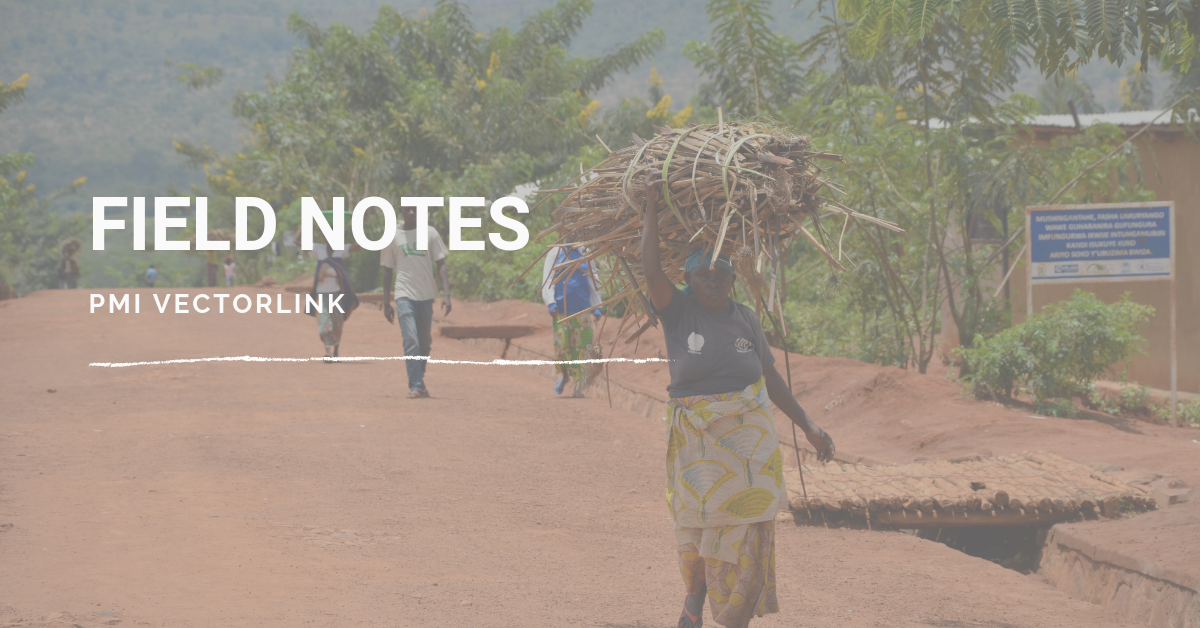
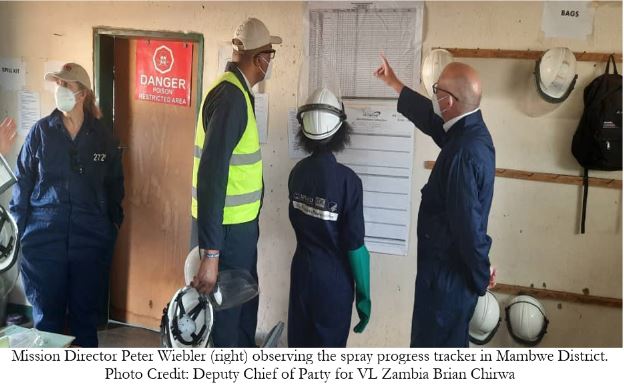 This week’s Fist Bump goes to the VectorLink Zambia team, who recently hosted the new USAID/Zambia Mission Director Peter Wiebler and other USAID/PMI Zambia staff in Mambwe District, Eastern Province during the IRS campaign. The new Mission Director, who arrived in Zambia about two and a half months ago, observed first-hand the U.S. government’s support through the PMI VectorLink Project to Zambia’s 2022 IRS campaign, which began in late September in 18 districts across three of the 10 provinces.
This week’s Fist Bump goes to the VectorLink Zambia team, who recently hosted the new USAID/Zambia Mission Director Peter Wiebler and other USAID/PMI Zambia staff in Mambwe District, Eastern Province during the IRS campaign. The new Mission Director, who arrived in Zambia about two and a half months ago, observed first-hand the U.S. government’s support through the PMI VectorLink Project to Zambia’s 2022 IRS campaign, which began in late September in 18 districts across three of the 10 provinces.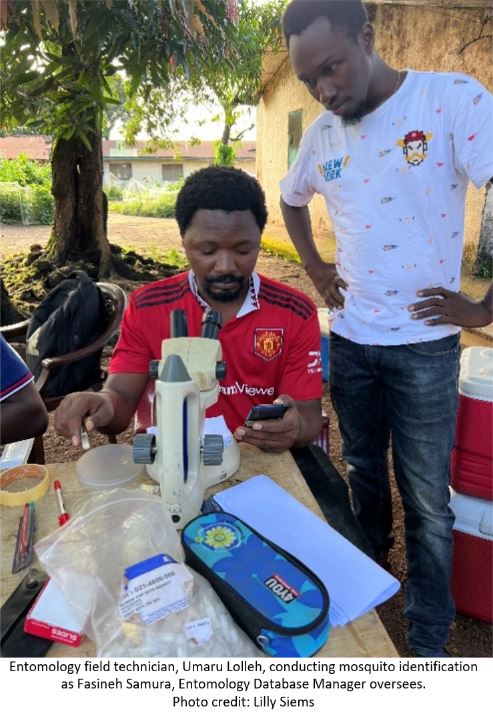 This week’s Fist Bump goes to the PMI VectorLink Sierra Leone team for launching mobile data collection for entomological surveillance. The VectorLink Sierra Leone entomology and M&E teams successfully transitioned standard paper data collection to mobile phones in Western Area Rural District following a two-day training held near the capital, Freetown.
This week’s Fist Bump goes to the PMI VectorLink Sierra Leone team for launching mobile data collection for entomological surveillance. The VectorLink Sierra Leone entomology and M&E teams successfully transitioned standard paper data collection to mobile phones in Western Area Rural District following a two-day training held near the capital, Freetown.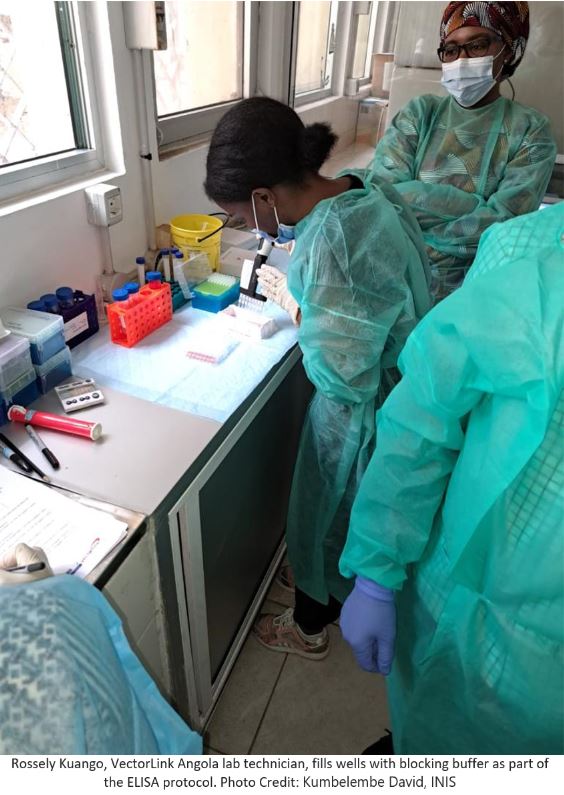 This week we are celebrating our PMI VectorLink Angola team for the support they have provided to the Instituto Nacional de Investigação em Saúde (INIS) located in Luanda and the National Malaria Control Program. With support from PMI and CDC, their capacity strengthening efforts have enabled the country to achieve a very exciting milestone: Angola now has the institutional and human capacity to conduct two key malaria lab analyses—polymerase chain reaction (PCR) tests and circumsporozoite enzyme-linked immunosorbent assays (CS ELISAs) within its own borders at INIS!
This week we are celebrating our PMI VectorLink Angola team for the support they have provided to the Instituto Nacional de Investigação em Saúde (INIS) located in Luanda and the National Malaria Control Program. With support from PMI and CDC, their capacity strengthening efforts have enabled the country to achieve a very exciting milestone: Angola now has the institutional and human capacity to conduct two key malaria lab analyses—polymerase chain reaction (PCR) tests and circumsporozoite enzyme-linked immunosorbent assays (CS ELISAs) within its own borders at INIS!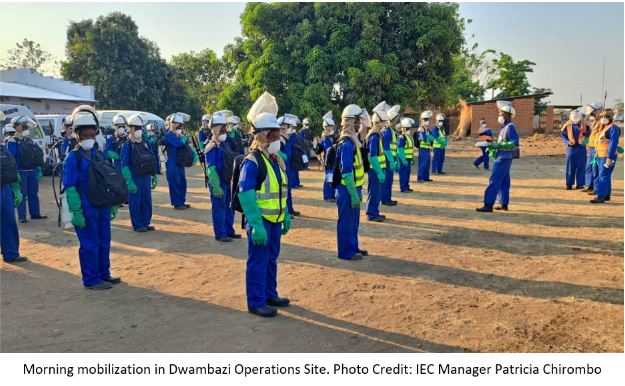 This week’s Fist Bump goes to the VectorLink Malawi team, which began its IRS campaign this past Monday. A launch event was held in the far north of Nkhotakota District, where the spraying is taking place, and was attended by representatives from the NMCP and the Nkhotakota Health Office, as well as traditional authorities and the District Council. Community leaders and NMCP representatives reaffirmed their support for IRS and encouraged community members to allow their houses to be sprayed.
This week’s Fist Bump goes to the VectorLink Malawi team, which began its IRS campaign this past Monday. A launch event was held in the far north of Nkhotakota District, where the spraying is taking place, and was attended by representatives from the NMCP and the Nkhotakota Health Office, as well as traditional authorities and the District Council. Community leaders and NMCP representatives reaffirmed their support for IRS and encouraged community members to allow their houses to be sprayed.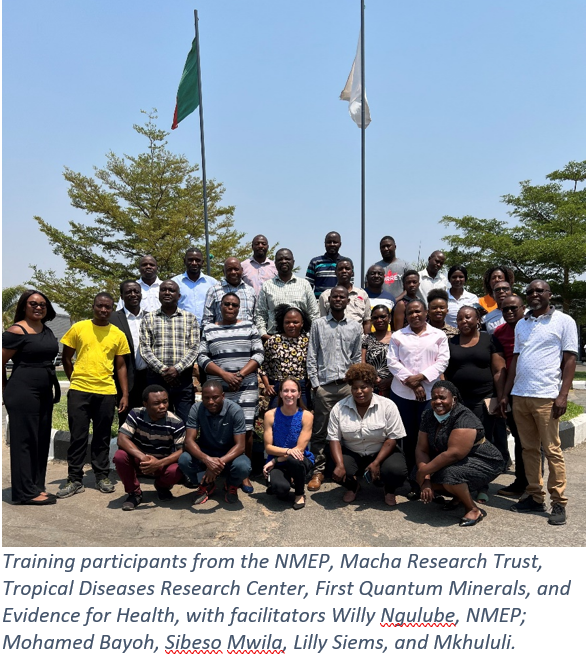 This week’s Fist Bump goes to the VectorLink Zambia team for facilitating the first national program adaptation of our VectorLink Collect system for entomological data collection and management across all of Zambia’s entomological partners.
This week’s Fist Bump goes to the VectorLink Zambia team for facilitating the first national program adaptation of our VectorLink Collect system for entomological data collection and management across all of Zambia’s entomological partners.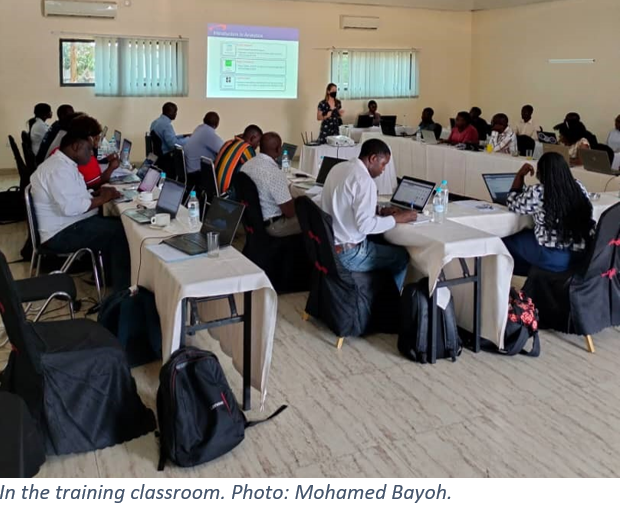
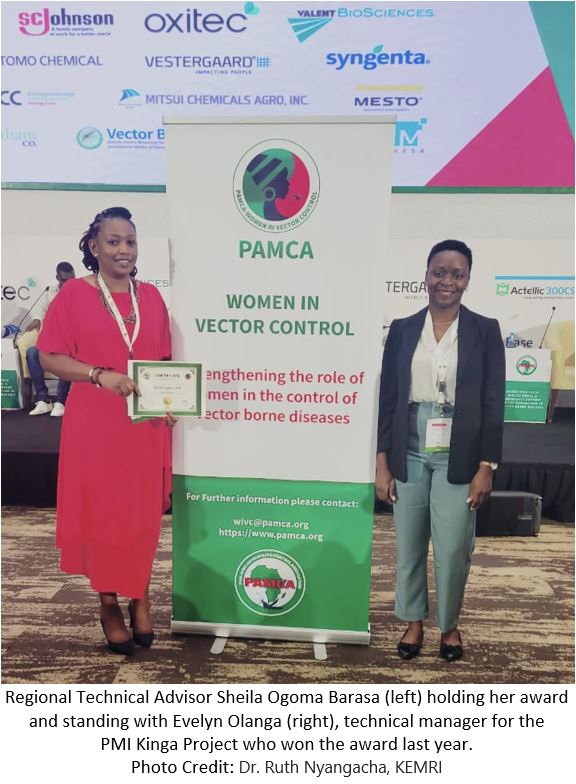 Women are important stakeholders in efforts to combat vector-borne diseases. The Pan-African Mosquito Control Association (PAMCA) established a women in vector control (WIVC) program and supports the active leadership and participation of women in vector control by organizing award ceremonies that recognize the work, achievements, and excellence of women who have contributed exceptionally to research and leadership in the control of vector-borne diseases in Sub-Saharan Africa.
Women are important stakeholders in efforts to combat vector-borne diseases. The Pan-African Mosquito Control Association (PAMCA) established a women in vector control (WIVC) program and supports the active leadership and participation of women in vector control by organizing award ceremonies that recognize the work, achievements, and excellence of women who have contributed exceptionally to research and leadership in the control of vector-borne diseases in Sub-Saharan Africa.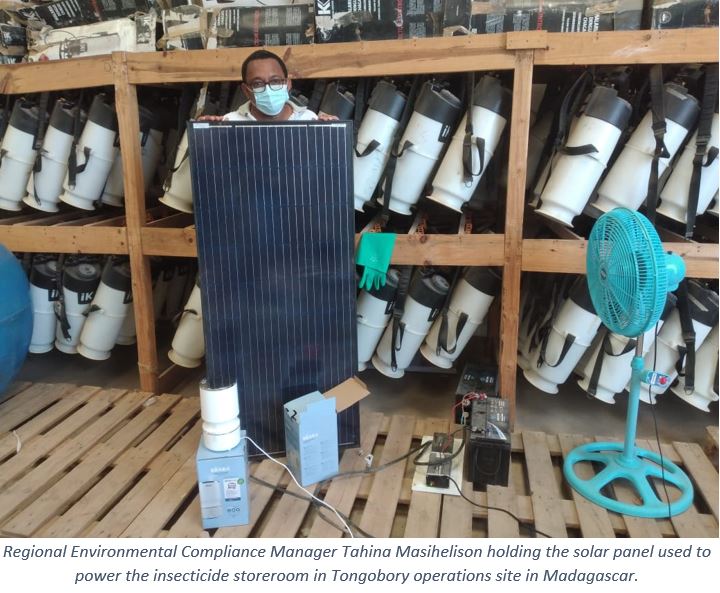 With Climate Week this week, we thought it would be fitting to give a shout out to all our colleagues who work so diligently to adapt malaria services to a changing climate as well as ensure that our interventions have as minimal an impact on the environment as possible.
With Climate Week this week, we thought it would be fitting to give a shout out to all our colleagues who work so diligently to adapt malaria services to a changing climate as well as ensure that our interventions have as minimal an impact on the environment as possible. 
 How do we assess the impact of vector control interventions, when the quality of existing epidemiological data sources is insufficient?
How do we assess the impact of vector control interventions, when the quality of existing epidemiological data sources is insufficient?